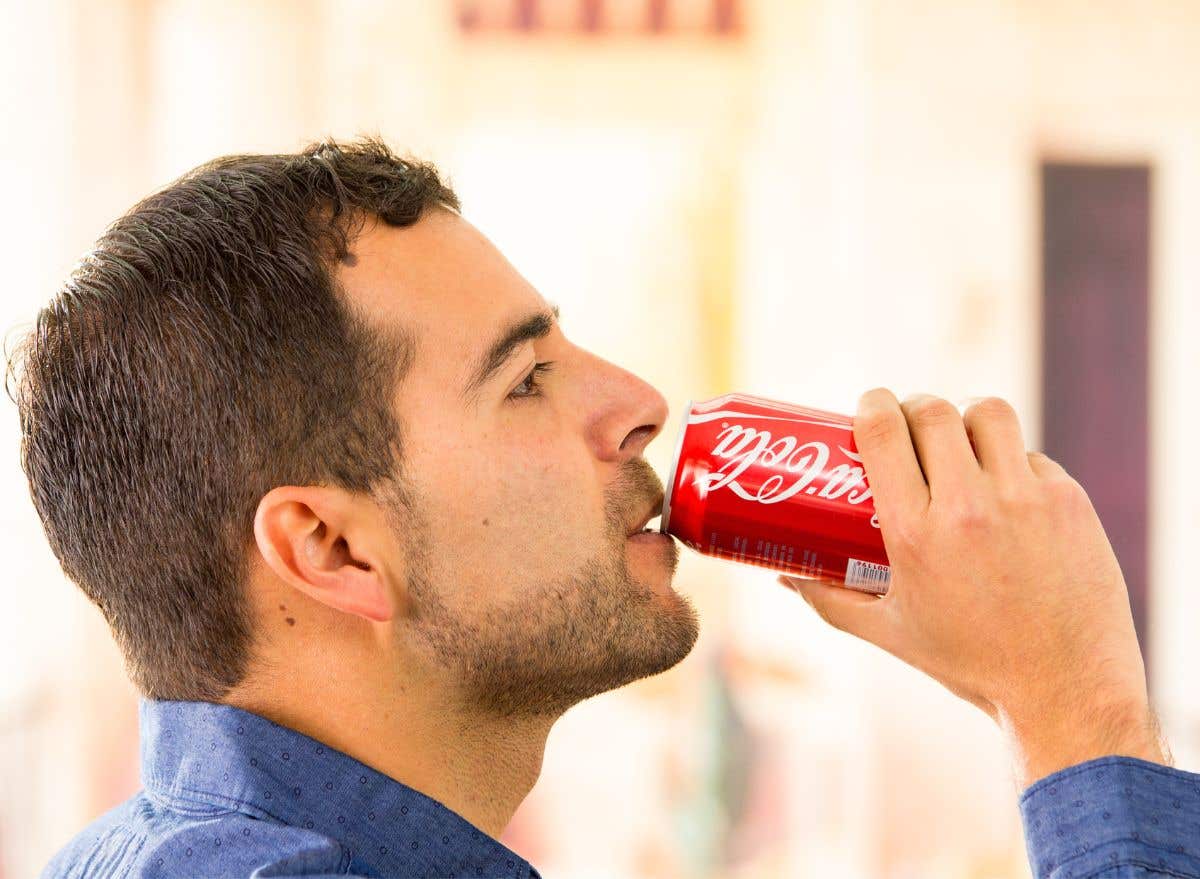Drinking sugar is worse for health than eating it, study finds
New research reveals sugary beverages increase diabetes risk significantly, while sugars from solid foods do not have the same harmful effect.

BYU research shows sugary drinks sharply raise diabetes risk, but sugar from solid foods may not be as harmful. (CREDIT: Shutterstock)
Despite years of warnings about sugar’s role in diabetes, recent research from Brigham Young University (BYU) adds surprising details to this well-known story. Not all sugars are equally harmful, and your risk for type 2 diabetes might depend more on how and in what form you consume sugar than previously thought.
A new extensive analysis by BYU researchers, working alongside scientists from German institutions, sheds light on the distinct health impacts of different sugars. By examining data from over half a million people worldwide, the study revealed significant differences based on the sugar’s source. Sugary drinks, including soda and even fruit juices, were clearly linked to increased diabetes risk, while sugars from other food sources showed a more complex, sometimes even beneficial, relationship.
Drinking Sugars Raises Diabetes Risk
Researchers evaluated dozens of studies involving more than 1 million people across Europe, the U.S., Asia, Australia, and Latin America. They analyzed the intake of sugars from beverages like soda and juice, as well as from foods containing sucrose, fructose, and other sugar types. What they found was striking: each additional daily serving of a sugar-sweetened beverage (such as soda, energy drinks, or sports drinks) increased the risk of developing type 2 diabetes by 25%.
This relationship was clear and direct, starting from the very first sugary drink consumed daily. Fruit juice, often perceived as healthier, still carried a 5% higher risk with each additional 8-ounce serving. While these numbers may seem small, consider this: if your typical diabetes risk is around 10%, regularly drinking four sodas daily could nearly double that risk to about 20%.
“This is the first study to draw clear dose-response relationships between different sugar sources and type 2 diabetes risk,” explained Karen Della Corte, the study’s lead author and nutritional science professor at BYU. “It highlights why drinking your sugar—whether from soda or juice—is more problematic for health than eating it.”
Not All Sugars Are Created Equal
Surprisingly, sugars consumed in solid form—such as table sugar (sucrose) or total dietary sugars from various foods—did not increase diabetes risk. In fact, consuming around 20 grams of these sugars daily appeared to slightly lower the risk, hinting at a possible protective effect. These findings challenge the common belief that all dietary sugars equally contribute to diabetes.
Related Stories
Why is liquid sugar worse? It’s likely due to how quickly and directly these sugars impact the body. Sugary beverages rapidly deliver large amounts of sugar into your bloodstream, overwhelming your liver and increasing fat storage, insulin resistance, and inflammation. Solid foods containing sugar often include beneficial nutrients, fibers, and proteins that slow down sugar absorption, making them less harmful metabolically.
Fruit Juice: Not as Healthy as You Think
Fruit juice, despite having some nutritional value, was highlighted as significantly less beneficial compared to whole fruits. Juice provides sugar in concentrated forms without fiber, leading to quicker blood sugar spikes. Whole fruits, with their natural fiber, help slow the absorption of sugars, maintaining better blood glucose control and reducing diabetes risk.
“Fruit juice, even with vitamins, isn’t a good substitute for whole fruit,” said Della Corte. “It’s crucial to understand that concentrated liquid sugars, even from seemingly healthy sources, can harm metabolic health significantly.”
Reevaluating Sugar Guidelines
Traditionally, public health guidelines have lumped all sugars together, advocating for reduced consumption across the board. However, this research suggests a need to differentiate between sugar types, particularly focusing on beverages. Current guidelines emphasize limiting sugar-sweetened beverages due to their known association with diabetes, but the broader implications of these findings might lead to more nuanced recommendations.
“Our results clearly indicate the need for stronger guidelines specifically against sugary beverages and fruit juice,” stated Della Corte. "Future dietary advice should better reflect these differences, guiding people away from harmful liquid sugars rather than demonizing all sugars."
This comprehensive review, published in leading scientific journals, used advanced dose-response modeling techniques, providing robust evidence for these relationships. Unlike previous studies that broadly categorized sugars, this research accounted precisely for each sugar type and its source, offering clearer guidance for consumers and healthcare providers.
As diabetes continues to rise globally, pinpointing specific dietary risk factors becomes increasingly important. By highlighting the different impacts of sugar based on how it is consumed, this study offers valuable insights for managing diabetes risk through informed dietary choices.
Della Corte emphasized the significance of these findings, urging the public to reconsider their sugar intake strategies. “Rather than focusing solely on reducing all sugar, people might benefit more by specifically avoiding sugar-sweetened beverages and juice, opting instead for sugars embedded in healthier food choices,” she said.
In a landscape where sugar has often been universally vilified, this nuanced research helps clarify how sugars differently affect health. It emphasizes a targeted approach, highlighting beverages as the main culprit behind the rising diabetes epidemic, while recognizing that not all sugar sources have the same impact on health.
Research findings are available online in the journal Science Direct - Advances in Nutrition.
Note: The article above provided above by The Brighter Side of News.
Like these kind of feel good stories? Get The Brighter Side of News' newsletter.



